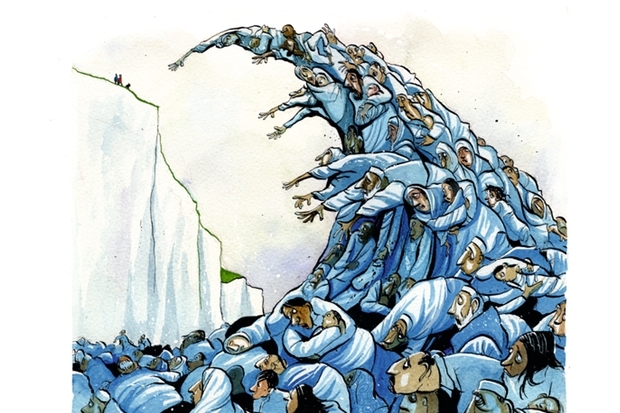Ask voters what the most important issue facing Britain is and just 2 per cent say immigration. Even when you expand it to the most important issues, the figure only reaches 6 per cent. This is a dramatic turnaround from 2015 when 56 per cent listed immigration as one of the top issues facing the country. In my Times column today, I ask what explains this shift.
The end of free movement and the resumption of border control has taken much of the heat out of the issue
In part, it is Covid. Before the pandemic, net migration to Britain was running at 313,000. In the past year, though, hundreds of thousands have returned to their home country for lockdown. The Office for Budget Responsibility estimates that the population might have fallen by 1.3 million — about 2 per cent — due to the exodus of foreign nationals who are not expected to return.
But concern about immigration had been falling long before Covid. Just before the Brexit referendum, the Ipsos MORI Issues Index showed 38 per cent of voters regarded immigration as one of the most important issues, ahead of the NHS (33 per cent), the economy (23 per cent) and the EU itself (28 per cent). Immigration was considerably less important in the general election fought by Theresa May and even less so when Johnson went to the polls 2019. It may be quite some time before it’s an election issue again.
Perhaps the end of free movement and the resumption of border control has taken much of the heat out of the issue. If voters think that they have ‘taken back control’ of immigration policy, as the Prime Minister put it, they may be less worried about it.
Interestingly, the loosening up of the rules around high-skilled migration in the Budget was uncontroversial. Even more striking is how the government’s decision to create a visa route to citizenship for those Hongkongers eligible for a British National Overseas passport — 70 per cent of the city’s 7.5 million population — is remarkably uncontroversial. To date, the contention that the political importance of immigration would fall once free movement was over has been borne out by events







Comments